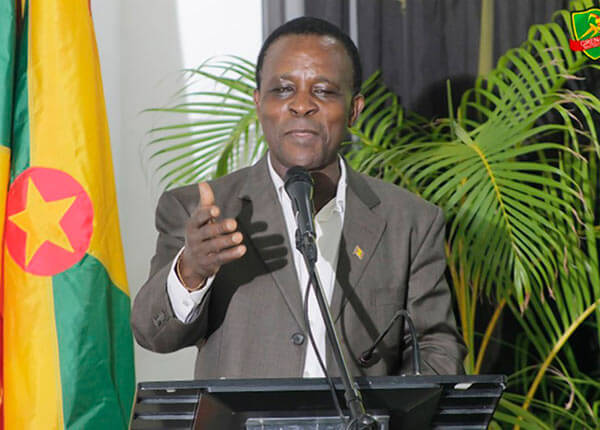Perhaps for the first time in living memory, a governing party shepherded by the same leader, has on two consecutive occasions won all 15 seats in general elections and again has a mandate to run the country without an elected opposition.
The New National Party (NNP) of Prime Minister Keith Mitchell of Grenada walked away with all the constituency seats on the island of just over 100,000 people in elections held on Tuesday of this week.
But this is not the first or second time that Mitchell, one of the most senior leaders in the 15-nation Caribbean Community, has achieved this feat.
Back in 1999, Mitchell had also decimated the political opposition, carting away with all the parliamentary constituency districts, much to the chagrin of the opposition National Democratic Party (NDC).
The NDC was led by former finance minister and attorney Nazim Burke who was narrowly beaten by the NNP candidate for a city seat.
Mitchell had again repeated the 15-0 scorecard in 2013 as he took advantage of a fractured opposition and early general elections triggered by a near break up of the NDC.
He says his party represents the type of stability that Grenada needs after the tumultuous 1980s when American troops had invaded the island in the wake of the collapse of the then socialist administration and the brutal assassinations of Prime Minister Maurice Bishop and five other cabinet ministers.
Mitchell, a mathematician and statistician by training, plans to hold a celebratory mass rally in St. George’s, the capital, this week but he also said that the time has come for the opposition to accept his long outstanding invitation to join the administration.
At the start of the week and just before campaigning had closed, Mitchell dropped the type of news on Grenadians that they had long wanted to hear. He told a rally that the spice and nutmeg isle, like Guyana, will soon find large quantities of oil and gas as seismic work done by an international consortium had unearthed large quantities of hydrocarbons in offshore waters. Grenada is just north of oil and gas-rich Trinidad and Tobago.
As the NNP and its supporters prepare to celebrate the third sweep of all the parliamentary seats in 19 years, colleagues in Antigua are also preparing to go to the polls in a week, on March 21.
Prime Minister Gaston Browne’s Antigua Labor Party (ALP) is trying to win a second consecutive five-year term. Polls show that Browne is likely to defeat the United Progressive Party (UPP) of former foreign and finance minister Harold Lovell. The ALP has 14 of the 17 seats but general sentiments are that Browne is likely to do so with a reduced majority.
Voters in Barbados, meanwhile, are also waiting on the naming of a date for the third constitutionally due general election in the bloc to be held by mid year.
Prime Minister Freundel Stuart recently dissolved the island’s 30-member parliament and has 90 days to call a general election. He has made it plain that he is in no hurry to do so but has also vowed not to breach the constitution in any way by not naming a date within the stipulated period.
Of the three who face the electorate this year, Staurt is the only one likely to head to opposition benches. His Democratic Labor Party (DLP) had had a comfortable 20-10 seat majority in elections in 2008 but dropped to 16-14 five years later in 2013. His administration has been beset by tough economic times including a massive drop in the island’s central bank foreign reserves, which now barely has enough money for less than five months of imports.























